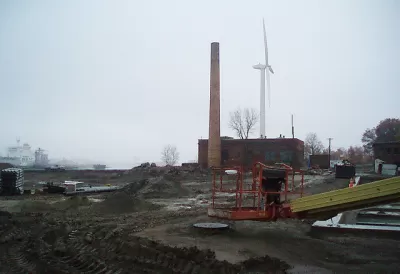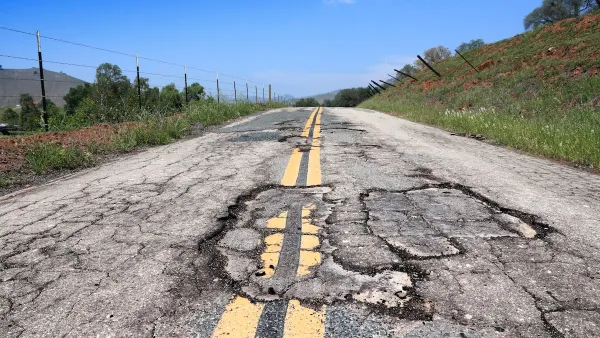The U.S. House of Representatives approved H.R. 3017 last week, which would extend the U.S. EPA brownfields through 2022.

Kira Hibbert reports that the House of Representatives passed H.R. 3017, the Brownfields Enhancement, Economic Redevelopment, and Reauthorization Act of 2017, on November 30. The bill would extend the U.S. Environmental Protection Agency's brownfield program, which provides funding to clean up and restore contaminated sites.
According to Hibbert H.R. 3017 improves the brownfields program by:
- Funding the program at an annual level of $200 million through fiscal 2022.
- Expanding brownfield grant eligibility to nonprofit groups and partnerships, such as community development organizations.
- Allowing the EPA to award multi-purpose grants of as much as $1 million to cover different activities or remediation at more than one site, and
- Increasing the maximum amount for other grants to $500,000 per site, from $200,000 with a new cap as large as $750,000 per site.
The House version of the bill has competition from the Senate's version—the latter would set aside less money for the brownfields program. "The House and Senate are expected to negotiate the final FY 2018 appropriations bill by the end of the year," according to Hibbert.
Hibbert writes to express support for H.R. 3017 from Smart Growth America, LOCUS, and the National Brownfields Coalition. TheU.S. Conference of Mayors, the National League of Cities, the National Association of Counties, and the National Association of Regional Councils also support the bill. The website for the Transportation and Infrastructure Committee of the House also collected statements from committee members in response to the adoption of the bill.
FULL STORY: HOUSE PASSES BROWNFIELDS REAUTHORIZATION BILL

Planetizen Federal Action Tracker
A weekly monitor of how Trump’s orders and actions are impacting planners and planning in America.

Map: Where Senate Republicans Want to Sell Your Public Lands
For public land advocates, the Senate Republicans’ proposal to sell millions of acres of public land in the West is “the biggest fight of their careers.”

Restaurant Patios Were a Pandemic Win — Why Were They so Hard to Keep?
Social distancing requirements and changes in travel patterns prompted cities to pilot new uses for street and sidewalk space. Then it got complicated.

Platform Pilsner: Vancouver Transit Agency Releases... a Beer?
TransLink will receive a portion of every sale of the four-pack.

Toronto Weighs Cheaper Transit, Parking Hikes for Major Events
Special event rates would take effect during large festivals, sports games and concerts to ‘discourage driving, manage congestion and free up space for transit.”

Berlin to Consider Car-Free Zone Larger Than Manhattan
The area bound by the 22-mile Ringbahn would still allow 12 uses of a private automobile per year per person, and several other exemptions.
Urban Design for Planners 1: Software Tools
This six-course series explores essential urban design concepts using open source software and equips planners with the tools they need to participate fully in the urban design process.
Planning for Universal Design
Learn the tools for implementing Universal Design in planning regulations.
Heyer Gruel & Associates PA
JM Goldson LLC
Custer County Colorado
City of Camden Redevelopment Agency
City of Astoria
Transportation Research & Education Center (TREC) at Portland State University
Camden Redevelopment Agency
City of Claremont
Municipality of Princeton (NJ)





























